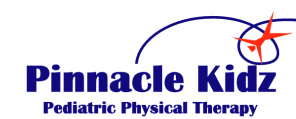Developmental Support Services
Prevention is always the best treatment when considering pediatric conditions that require physical therapy. As specialists in infant and childhood motor development, pediatric physical therapists can assess for potential risk factors that lead to motor delays, movement disorders, and postural asymmetries. Periodic assessments with a pediatric physical therapist can identify strategies for home management to avoid the need for physical therapy intervention in the future and to help all children develop into their best physical selves.
Babies are born curious and ready to explore how their bodies interact with their environments. They can't wait to get moving! Ask us about scheduling your child's first annual physical therapy evaluation to assess his or her strength, muscle tone, range of motion, motor development, and posture.
During your session, you will learn:
Babies are born curious and ready to explore how their bodies interact with their environments. They can't wait to get moving! Ask us about scheduling your child's first annual physical therapy evaluation to assess his or her strength, muscle tone, range of motion, motor development, and posture.
During your session, you will learn:
- Positions and techniques for holding, carrying, and playing with your baby based on his/her chronological age and developmental level
- Techniques for improving tummy time tolerance
- Signs of common pediatric physical therapy diagnoses and tools for prevention
- Toys to encourage and/or avoid with your baby based on his/her specific needs
- A custom "work out" routine to facilitate your baby's movement in developmentally appropriate ways
Tummy Time Training
Supervised tummy time is an important activity for all babies beginning in early infancy to help lay a strong foundation for future motor development. Learn tear-free techniques for play time at home to make tummy time enjoyable and fun, as well as strategies to get the most benefit out of your tummy time sessions based on your baby's age and developmental level. |
Flat Head Prevention
Plagiocephaly and brachycephaly describe conditions where an area of flatness develops on the back of a baby's head. These conditions are becoming increasingly more common in babies today. Learn the risk factors for developing a "flat spot" and positioning techniques and exercises to help prevent or reverse this condition in your baby. |
Gross Motor Support
Every baby has a different timeline for achieving motor milestones, and the age range for "typical" development is very large. Learn how to provide your baby with specific experiences and postures during play that can help facilitate his or her curiosity and encourage achievement of motor milestones. |
How can I get started?
If you are interested in scheduling a session with one of our physical therapists to
assess your baby's unique developmental needs, contact our office to set up an appointment.
assess your baby's unique developmental needs, contact our office to set up an appointment.
